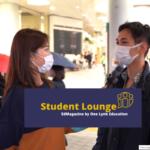
Pandemic’s impact on planning for study abroad

Two recent surveys of prospective students have arrived at very similar results regarding the pandemic’s impact on planning for study abroad. The first comes from QS Quacquarelli Symonds which is the world’s leading provider of services, analytics, and insight to the global higher education sector. The survey relies on responses from about 3,000 prospective students collected through September 2020. The second recent research, from educations.com, examines a similar number of respondents collected in the first three weeks of October.
Firstly, both studies find that the demand for study abroad remains strong among prospective international students. Only a small percentage of responses indicate the intention to cancel their study plans. Some students said that COVID-19 has caused them to choose an alternate study destination. The vast majority, however, are still planning to defer their programme starts probably to 2021.
During the coronavirus pandemic, the prospective students face complex challenges such as changing travel restrictions and financial aspects. Starting the studies overseas is complicated enough under normal circumstances, but many students choose to delay their application process in this challenging climate.
When the students believe to begin their studies, 85% of QS respondents will start their studies in 2021 compared to roughly two-thirds of educations.com respondents. Interestingly, 15% of educations.com respondents stated they did not know when they would begin their studies, suggesting a higher level of uncertainty for some students in comparison to a similar survey conducted in March and April of this year. (At that point, 10% responded said they didn’t know when they would begin their studies.)
A positive seeing is that only 3.9% of prospective education.com students plan to cancel their future study plans in response to the COVID-19 pandemic. This demonstrates that while students feel increased uncertainty, they are not cancelling their plans immediately but dedicate time and resources to their international studies, and are hopeful for their plans to get through.
The QS survey respondents voiced very similarly that they no longer wanted to pursue studies overseas with 4%.
The important finding that comes out from the survey is that students remain highly committed to studying in-person and on-campus. In fact, most of the students are planning to postpone to a point where they expect a return to campus will be possible. Most importantly, the interest of students may change their decision of a study destination where students may switch to destinations that are seen to have better outlooks for pandemic response and recovery.
Both studies show more light on the global COVID-19 developments, and how despite the current situation, many prospective students are determined to engage with the full study abroad experience when campuses re-open for face-to-face instruction and in a country considered to be well prepared for the pandemic response.
























